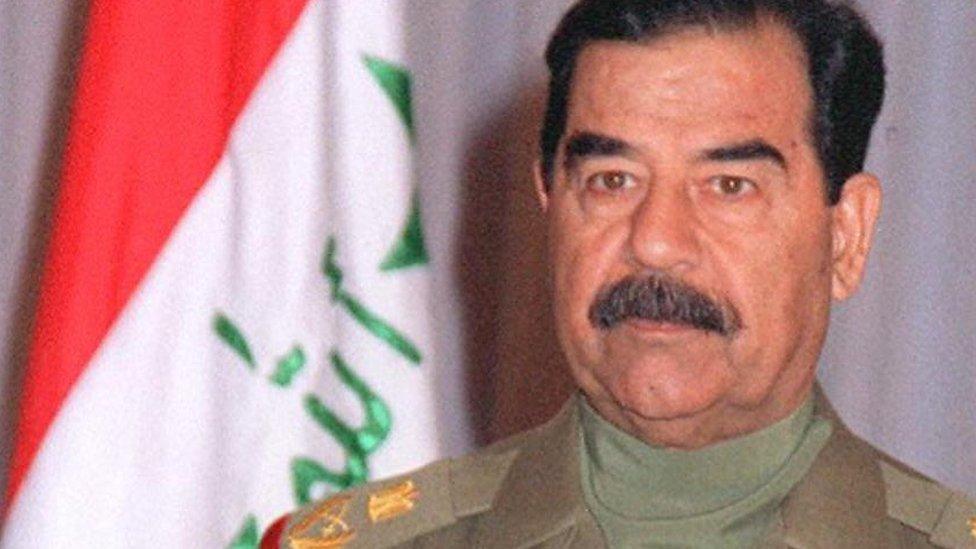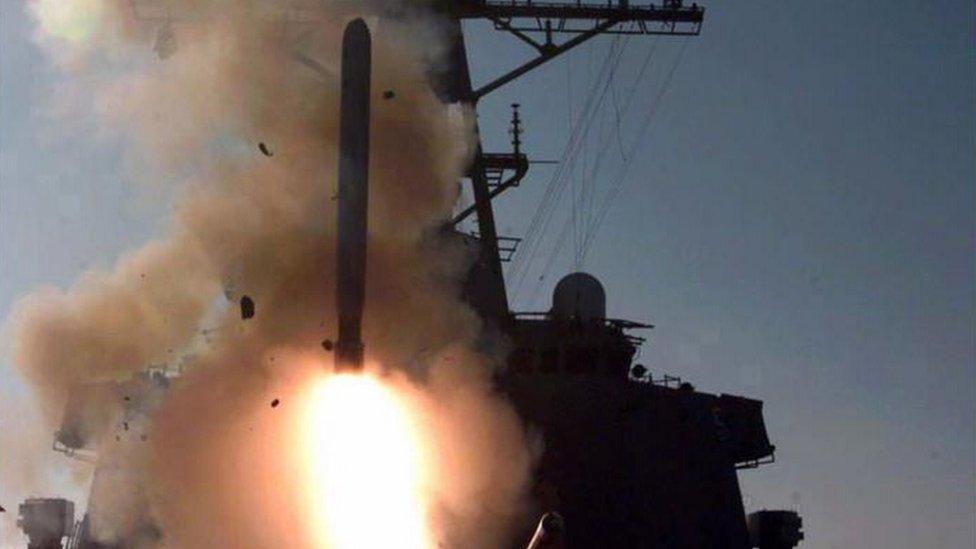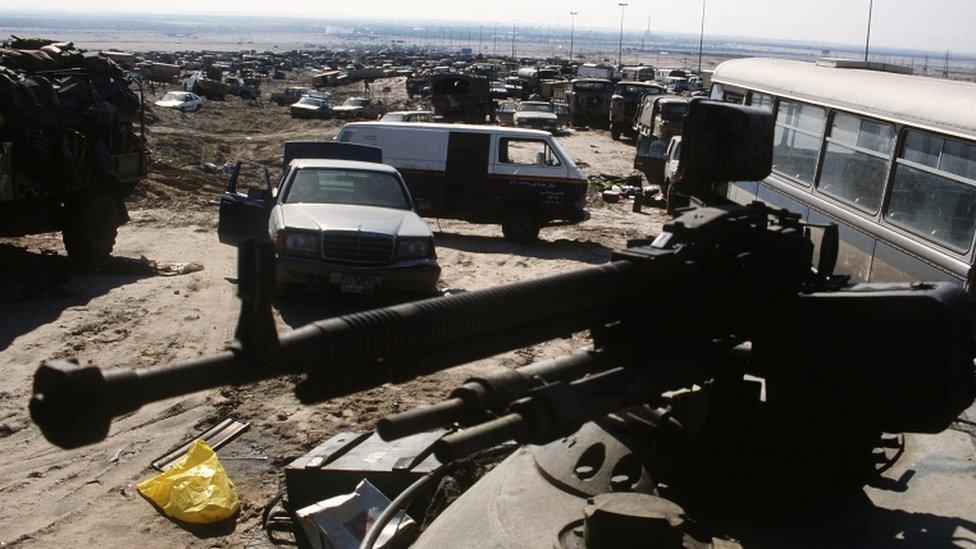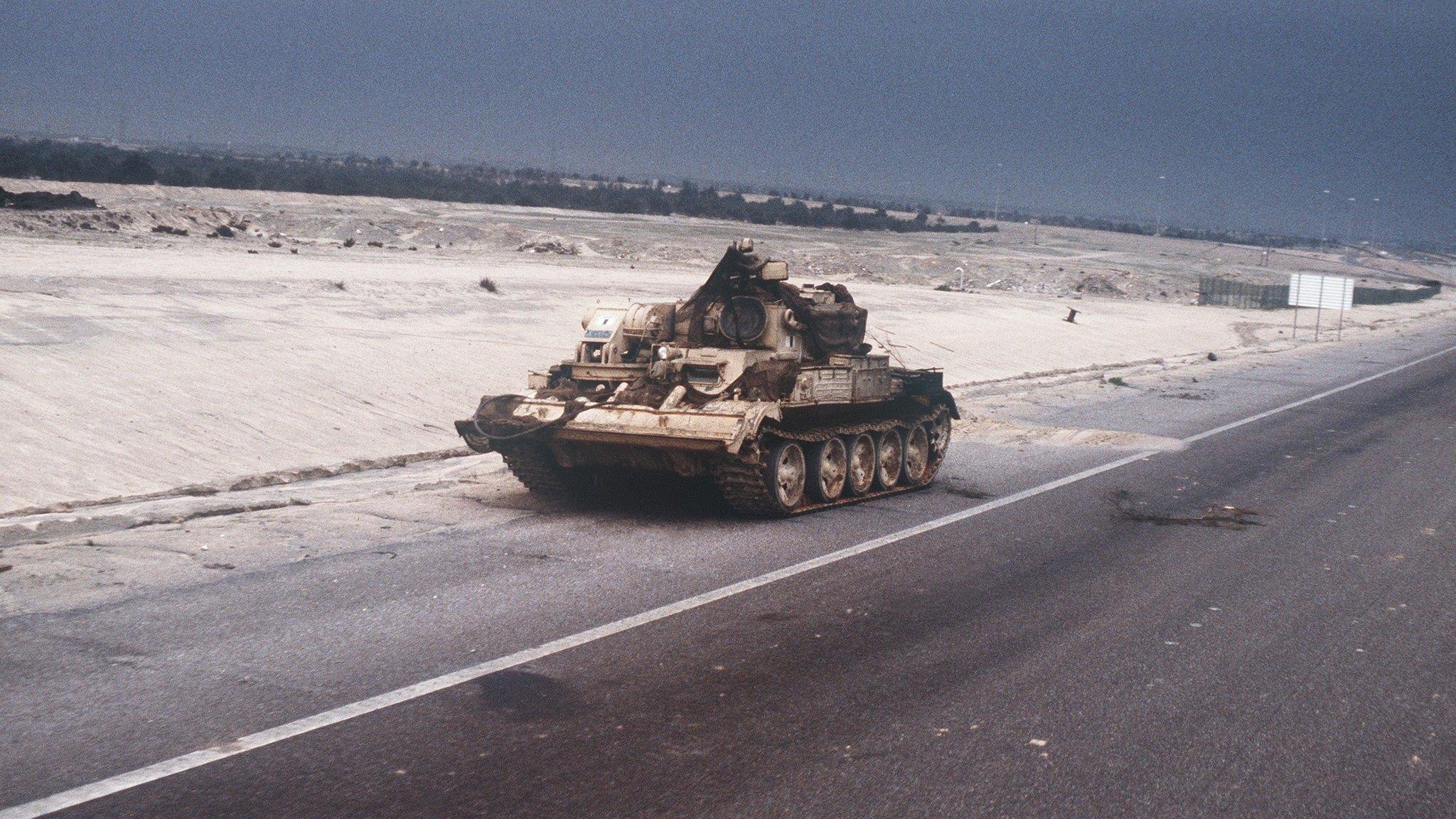Operation Desert Storm: Last of its kind
- Published

The aim was to eject Saddam Hussein's forces from Kuwait
A quarter of a century on, seen through the fog of more recent conflicts, the first Gulf War might look like a straightforward military success, or even the last significant victory for American and British forces.
Given the West's subsequent military failures in the region, some may even view it with a touch of nostalgia.
On the face of it, there was a simple military objective.
Saddam Hussein had invaded neighbouring Kuwait, and the world was willing to use force to eject him.
That unity of purpose was reflected in almost unanimous agreement at the United Nations and a Security Council resolution.
The "cause was both just and legal", says Maj-Gen Patrick Cordingley, the 7th Armoured Brigade's commanding officer in "Desert Storm" (few will remember it by its British name, "Operation Granby".)
Importantly, military action complied with both international and UK law, he adds, clarity lacking in the subsequent invasion of Iraq in 2003.
The first Gulf War brought together the largest military alliance since the World War Two - more than 30 allies, including Britain, which fielded a force of more than 50,000, the US, Saudi Arabia and Egypt.
And it was a conventional fight far simpler than the murky insurgencies, asymmetric and hybrid warfare that would follow.
Military revolution
Michael Clarke, professor of war studies at Kings College London, says in many ways it was "the Nato war the West had prepared for, but never fought in Europe".
It was lined up against an Iraqi army that relied heavily on Warsaw Pact equipment and tactics, but without the same discipline and intelligence.
The Iraqis proved to be incredibly inept.
Prof Clarke says it was also the beginning a "military revolution" - the first time we really heard of "smart bombs" and precision guided munitions.

Iraq was bombarded with Tomahawk cruise missiles
The world watched as America unleashed wave after wave of Tomahawk cruise missiles.
Iraq's arsenal may have been less sophisticated, but, with its Scud missiles and potential use of chemical weapons, it still fuelled the fear factor.
And the revolution was not confined to new types of weapons.
It came in communication too.

Operation Desert Storm:
A UN Security Council resolution, external authorised the use of force if the Iraqi army failed to withdraw from southern neighbour Kuwait by 15 January 1991
At 23:30 GMT on 16 January, an intense and sustained aerial bombardment began involving cruise missiles launched from US warships and US, British and Saudi Arabian fighter planes, bombers and helicopters
In the first 24 hours, more than 1,000 sorties were flown
The main targets were military, but capital Baghdad was heavily hit and there were many civilian casualties
By the end of February, the Iraqi army had made a desperate retreat from Kuwait
On 27 February, a three-day land campaign ended when US President George Bush declared victory

Desert Storm was the first televised war in the new era of rolling news - with reports and live broadcasts from the front line - a challenge with which the military is still grappling.
Illusions created
The air campaign to "soften up" the enemy took weeks.
The ground offensive was over within days.
It was the "100-hour war".
But a secondary unstated goal was left unfinished.
Gen Sir Rupert Smith, who commanded the UK's 1st Armoured Division at the time, says while the objective of liberating Kuwait was achieved, "the strategic condition was hardly decisive and subsequently had to be maintained by no-fly zones and UN sanctions".

Iraqi forces abandoned vehicles as they retreated from Kuwait
Any attempt to put Saddam Hussein "back in his box" or help bring about his demise failed.
Prof Clark says the quick military victory created "many illusions that soon came home to roost".
The hubris would soon come crashing down.
The subsequent US-led military interventions in Afghanistan and Iraq were costly enduring campaigns against unconventional armies that would end without any clear victory.
In particular, the US-led invasion of Iraq in 2003 showed the limits of US military might and tested the unity of the international order - the UN was bitterly divided.
And Gen Cordingley says the British army, now designed to fight wars "among the people", would be "incapable" of ever again doing anything on the same scale as Desert Storm.
- Published17 January 2016
